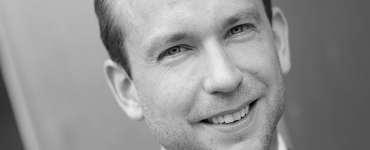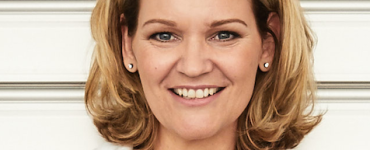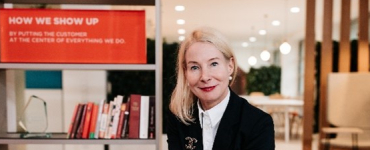There are any number of good reasons as to why the Internet industry needs female reinforcement. Numerous fields in the branch are up against a shortage of skilled workers. What’s more, homogeneous teams and uniform ways of thinking represent a clear obstacle to innovation. The digital industry is booming, new digital business models are being created each and every day, and lucrative jobs are being created – but all too often, women are still missing out. We want to change that. In our series “Women in the Tech Industry”, we invite inspiring female specialists and executives from the Internet industry to take the floor. Here we deal with the really important topics: from development perspectives, through career tips and hopes for the future, to the challenges in a male-dominated working environment – and ultimately, to highlighting why working in the Internet industry is fun. This time with:Katja Tietze, Blockchain Consulting and Business Development with T-Systems Multimedia Solutions.
What is stated on your business card?
Katja Tietze: “Blockchain Consulting and Business Development”
That sounds so exciting that I’d like to apply for your job straight away. What would await me as a Blockchain Consultant at T-Systems Multimedia Solutions?
Tietze: You would need to have the desire to learn something new every day! This includes always having one ear tuned to the market and the other ear tuned to customers. Ultimately, the aim is to provide customers with the best possible advice on the extent to which blockchain technology in general, or specific blockchain solutions, can help to make their business more efficient or effective. We are not a research company or a broad-based innovation unit; we focus on the integration of this new technology into existing processes and systems in order to improve existing applications or to advance the development of new business models. Practicability and economy are high up on our list of priorities.
If a woman of any age were to ask you for a tip as a mentor: What would you advise her to do? Are you aware of any impediments and/or successful approaches?
Tietze: May I be upfront here? I don’t like this whole “women in IT” debate. Don’t get me wrong: we still live in a world where this debate is a reality. But I would like it best if it simply didn’t matter whether a woman or a man were doing this job. I don’t see myself as a “woman in IT”, but simply as a computer scientist. And I am convinced that, as long as girls are told over and again how unusual it is to have women in IT, few girls will opt for this profession. We have to get away from the sense of uniqueness and shift to normality. It helps to have role models, of course, but it also helps to simply do one’s thing. Therefore my advice: Know what you can do and who you are and don’t let yourself be guided by stereotypes or role models, but by your own objective aspirations.
If you had the chance to meet some female personality, either living or dead (ideally from the tech industry): Who would it be and why?
Tietze: Queen Elisabeth. Why? Because I never heard once heard somebody say, “She does her job really well for a woman”. (Perhaps this is because nobody remembers the last man in her position).
We’ll now give you another interesting job and make you editor-in-chief of a leading media publication – let’s say, the German BILD or the German FAZ newspaper: Which headline would you like to see in a lead article concerning “Diversity/Women in the Tech Branch”? And what should the article say?
Tietze: Ideally, I wouldn’t want to publish an article on this topic at all – especially not a lead article with an eye-catching headline. Because by emphasizing the uniqueness of women in the tech industry, we are questioning what should be the normality of this fact. And that seems ill-advised to me! But if it had to be the case, I would go for a historical retrospective along the lines of: “Today, unthinkable, formerly reality: when gender still played a role”. The article would deal with the fact that there was a time when women were still the exception in certain professions and it was not easy for young girls to break out of the pink/pale-blue trap.
In the last interview in this series, we talked with Donya Amer, Executive Vice President at Bosch. She proposed the following question to put to you: “For me personally, the diversity debate in Germany is too often reduced to gender diversity. What does diversity mean to you?”
Tietze: That’s a nice one. Yes, diversity is more far-reaching and ultimately no one is exactly like the other. Everyone has certain strengths and weaknesses, and in the end, the decisive success factors are often the optimal team composition and good communication between individuals. I wouldn’t set up a team on the basis of gender balance, but rather along the lines of skills balance. Professional expertise, business foresight, social competence, innovative thinking, flexibility and risk-taking – a little of everything (in a person or a team). For me, diversity means versatility and a broad horizon.
Thank you very much for the interview, Frau Tietze!
For our series “Women in the Tech Branch”, we are looking for more exciting interview partners. Please contact us if you are interested. Further information on women in the tech branch can be found on our New Work Competence Group site. https://international.eco.de/topics/new-work/ division.




